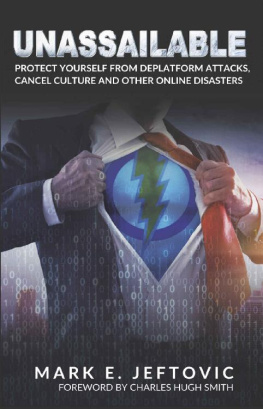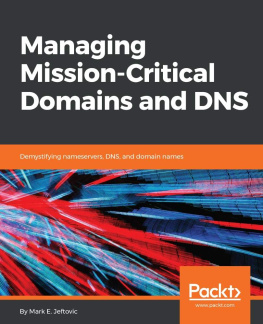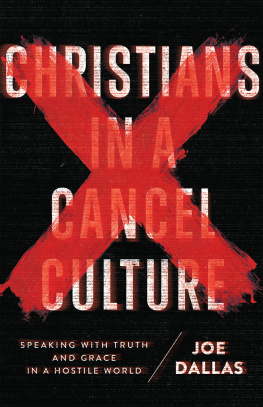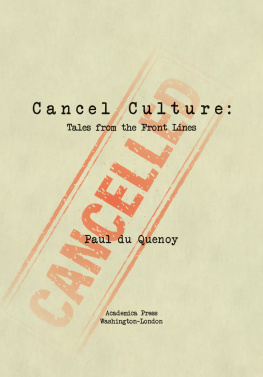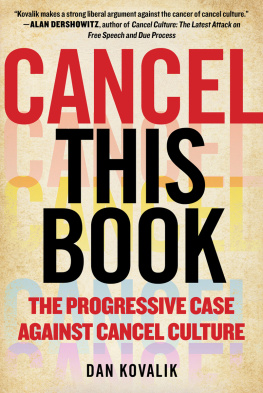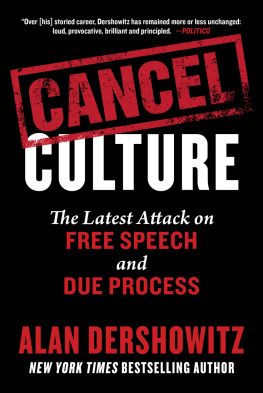Copyright
First published by AxisOfEasy Media, 2020
First edition. v1.04.1
AxisOfEasy Media is an imprint of VP Media
4243C Dundas St. W, Suite 405,
Etobicoke, ON
M8X 1Y3, Canada
Text copyright Mark E. Jeftovic
ISBN: 978-1-9992852-1-0
E-book: 978-1-9992852-0-3
All rights reserved. Contact
https://AxisOfEasy.media
Credits:
Cover design: Ryan McMillan
Back cover photo: Ian Paterson
Acknowledgments
A lot of people helped me with this book and Id like to take this opportunity to mention them in no particular order:
Sieg Pedde, Osama Arafat , Jim Carroll and Jesse Hirsh all read initial drafts and helped me flesh it out. Leslie James proof read it, more than once.
Always appreciative of Tamas Acs and Ranko Rodic who basically run the business while I write books, as well as the entire crew at easyDNS who do their jobs admirably.
And lastly, especially, my wife Angela who helped me stay focused on the subject material.
To Prometheus, the first whistleblower.
And for todays dissidents, indie media, whistleblowers, contrarians and anybody else who speaks truth to power at great risk.
"Everyone has the right to freedom of opinion and expression; this right includes freedom to hold opinions without interference and to seek, receive and impart information and ideas through any media and regardless of frontiers."
Foreword
By Charles Hugh Smith (oftwominds.com)
Societies around the world are experiencing unprecedented cultural purges of ideas and narratives that challenge the status quo. In some nations, this purge is managed by the central government, China being a leading example. In the developed Western nations, this purge is being conducted by private for-profit technology platforms that function as quasi-monopolies in Internet search, video and advertising (Google) and social media (Facebook and Twitter). Other technology platforms that provide communications and monetization of content services can also squelch free thought and expression by deleting accounts or shadow-banning content: they maintain the appearance of free access to the platform but severely limit its distribution. Just because you see your post doesnt mean anyone else can see it or forward it to others.
This empowering of corporations to conduct society-wide censorship without any legal protections is an extraordinarily dangerous precedent. Any user can be banned for what I call Anti-Soviet Thought, a reference to the Soviet Unions Orwellian-Kafkaesque system of conducting show trials and imprisoning citizens for thought crimes. A content creator banned by a tech platform has no rights or recourse: the platform is not obligated to identify the crime that supposedly violated their User Agreement or present evidence in support of this accusation. The banned user has no means to contest the conviction or the sentence (which as Mark so aptly describes, is a form of social and financial invisibility.)
In effect, these tech platforms wield extra-legal powers that are impervious to conventional government protections of civil liberties. (Those who attempt to sue these corporations face legal teams larger than those serving government agencies.) Users agree to open-ended Terms of Service that the corporations can interpret however they please, without any transparent process of appeal or redress.
Historically, dissident voices tended to find safe harbor in academia and the media: its difficult to fire tenured professors over their public opinions, and the pre-internet (and often family owned) media jealously guarded the independence of its journalists.
Today, the cultural purge is sweeping through these sectors with a vengeance. Its increasingly difficult to obtain tenure, and the traditional media has been bought up by corporations that have gutted employment as advertising revenues declined. (Recall that six corporations own the vast majority of the mainstream media, and they are enthusiastic fellow travelers of the cultural purge.)
In response, dissenting voices turned to the internets alternative media space of blogs, forums, podcasts and websites. In the pre-platform-monopoly days of the early 2000s, this space seemed to be a bulwark against censorship. The rise of these platforms has effectively brought the alternative media under their control: a content creator can still host a website but distribution and monetization (i.e. earning income from the content) are largely controlled by the platforms.
This suppression of dissenting views is enormously dangerous to democracy and the economy, as maintaining a diverse ecosystem of competing ideas and enterprises is the lifeblood of both democracy and free enterprise. Were not just fighting to maintain our intellectual and financial independence, were also fighting for civil society and a vibrant economy that isnt stifled by monopolies and cartels.
I am an unwilling expert on the mechanics of shadow-banning, since my content has been actively shadow-banned or limited by Facebook and Twitter. (Googles fingerprints are harder to see.) The idea behind shadow-banning is especially pernicious, as the intent is to promote the illusion of openness while crippling the content creator financially by limiting access to the platforms hundreds of millions of users.
I consider my content to be self-evidently reasonable. Indeed, I often half-jokingly point out that the primary data source on my site is the Federal Reserve of St. Louis database (FRED). My point is that reasonableness and data are no defense against purges, censorship and shadow-banning. We all need a well-thought out strategy to maintain our independence and our income, and this is what Mark lays out in these pages.
Mark explains why these defenses are necessary, and then lays out how to implement them. The entire strategy may feel overwhelming; if so, view it as a roadmap: start with the most critical defenses of your independence, and then make progress as time, money and effort allow.
The alternative media space is changing fast as the platforms seek to consolidate their power and co-opt, discredit or disempower their increasingly numerous critics. The business model of earning a livelihood from advertisements that seemed relatively secure has disintegrated before our eyes. We must expect further disruptions of distribution and monetization, and our only real defense is to control our own capital: the intellectual capital of our content, the social capital of our audience and network, and the economic capital of our revenue sources and income streams.
Our first job is to survive: maintain our content creation, our distribution of that content and whatever income we generate from our audience. Democracy and free enterprise need us to survive, and Marks book gives us a roadmap to not just survive but prosper.
Charles Hugh Smith

